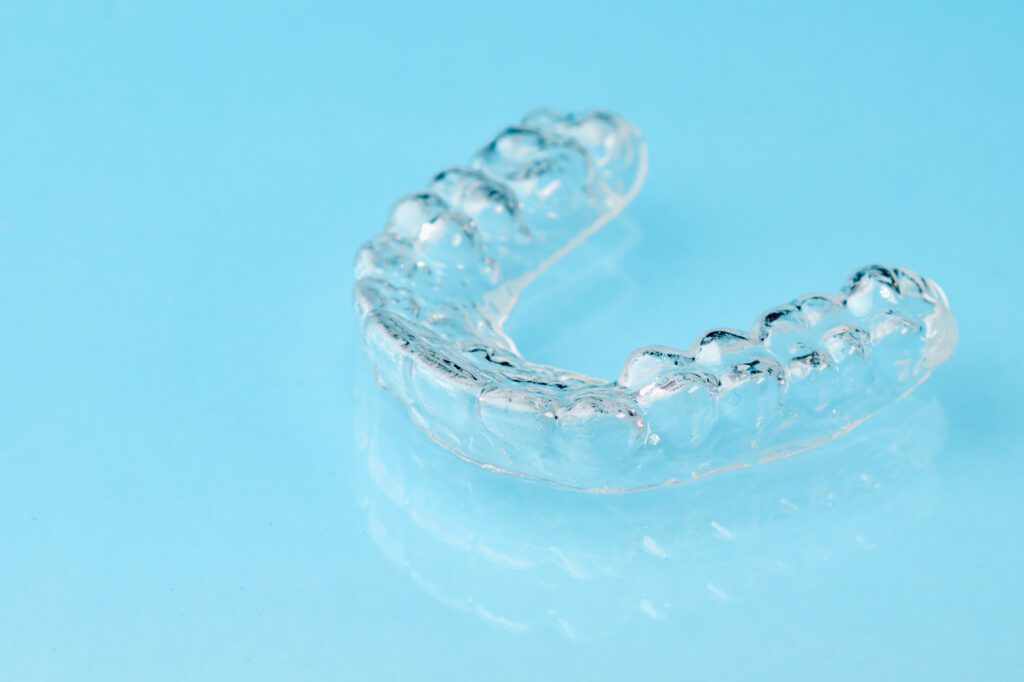ORTHODONTIC TREATMENT IS FINALLY OVER! NOW RETENTION?

Retention in Toledo & Archbold, Ohio
The day the braces come off is fantastic for any orthodontic patient, but don’t get ahead of yourself. Now that braces have moved the teeth into the correct position, you must keep it that way. That means retention after orthodontics.
We need retention after braces because the supporting structures around our teeth aren’t immediately used to their new position. The jaw bone and periodontal ligaments on the upper and lower teeth need time to finish adjusting. It takes time for your teeth and jaw bones to get used to this new arrangement. Patients who don’t bother to wear their retainer after braces might have crooked teeth again. So, when the time comes, don’t slack off!
Retainers may be removable or non-removable.
Removable
Removable, whether wire and acrylic or clear plastic, have the apparent advantage that you can take them out, which makes them much easier to clean. However, that also means you might forget to put them back in — or, worse, lose them after taking them out to eat lunch! Click here to learn more.
Non-Removable
Permanent retainers are fixed appliances cemented to the backs of the front teeth to hold the new tooth position. They have the advantage of permanently ensuring that your teeth don’t shift back, but they can make flossing between those teeth tricky. Fixed retainers might be the perfect choice for you if you think you’re likely to forget to wear them.
How Do I Keep My Dental Retainer Clean?
Retainers accumulate bacteria, plaque, and tartar while you wear them, just like teeth. They need regular cleaning, like your teeth, for the best oral health. No one wants to wear a retainer that smells, is discolored, and is covered in gunk!
The cleaning process will vary depending on what type of retainer you have. If yours is removable, rinse it in cool water and brush it at least once daily. If yours is bonded, we know it can make flossing a little tricky, but it’s worth it. Tartar likes to accumulate around a bonded retainer. Floss threaders or a water flosser can make good oral hygiene much more manageable. Follow this link to learn more.
How Often Should I Do a Deep Cleaning?
Daily cleanings are essential, but retainers need a more thorough cleaning every once in a while to stay in good condition. The hygienist can care for a bonded retainer at regular dental appointments. Still, you can clean a removable retainer at home, and it’s cheap and easy.
Either purchase special cleaning tablets or soak the retainer in a mixture of cool water and baking soda. Water and vinegar also work, or some hydrogen peroxide. Leave the retainer to soak for a few minutes, then rinse it and let it dry. However, never use hot water, which can warp them, or harsh chemicals like bleach.
How Do I Store My Retainer Between Uses?
There’s a good chance you’ll only need to wear a removable retainer overnight, so what’s the best way to store it during the day? Remember that harmful bacteria thrive in enclosed dark and damp environments, so it’s best to keep it somewhere dry and open to the air. Be aware that some types need to be soaked while not worn, so check with us on the specific needs of your retainer.
Regarding eating lunch in the school cafeteria, we highly recommend storing your retainer in a carrying case. We often hear stories of teens hiding them in their pockets or a napkin on a lunch tray. Doing this usually ends up with a broken retainer or having to search through cafeteria garbage bins. Save yourself and your parents time and money, and always keep your retainer in its case.
Fixed or Removable? | Wheeler Orthodontics Can Help
Before removing your braces, Dr. Wheeler, your orthodontist in Toledo and Archbold, Ohio, will help you determine which type of retention will best suit your treatment needs and comfort. You should always wear yours according to what your orthodontist recommends.
We recommend most teenagers and young adults wear their retainers while sleeping and between meals to strengthen the supportive tissue in their mouths. As your teeth adjust to the correct position, you may be asked to wear your retainer less often. Remember that the more you wear this device, the better it is for your teeth. Call Wheeler Orthodontics today to learn more about how retention can help you.

